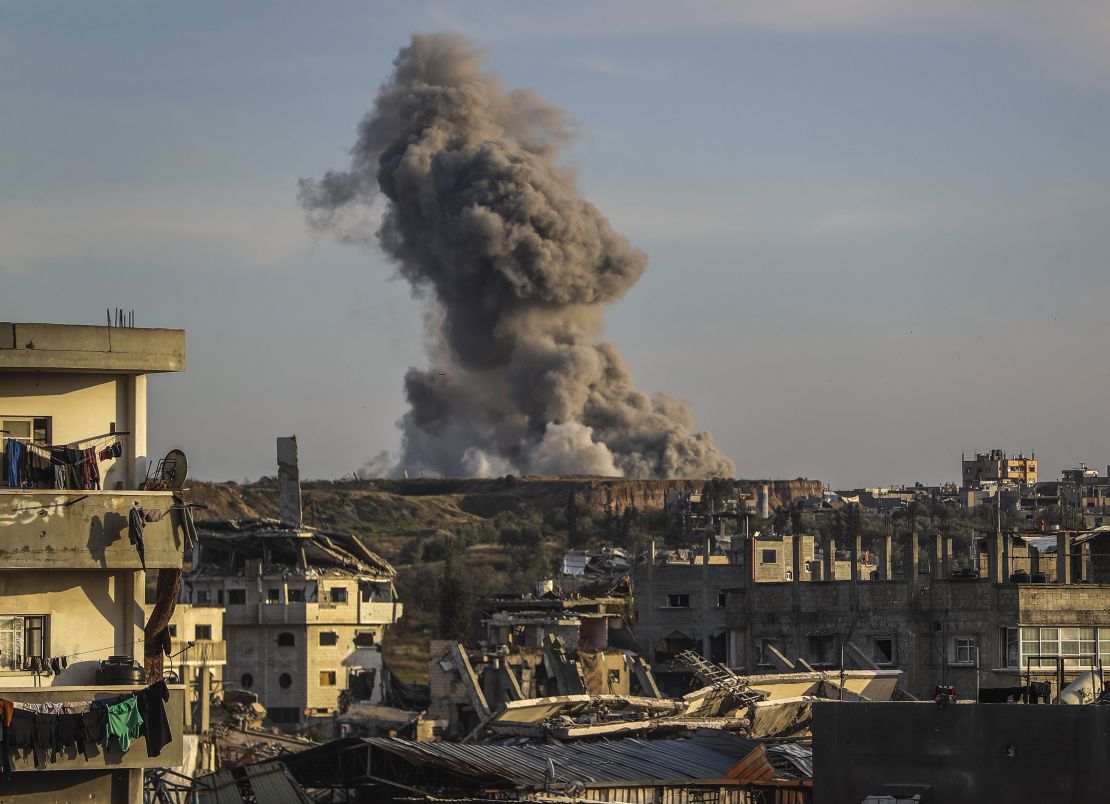Jerusalem
CNN
—
Palestinian Authority President Mahmoud Abbas has called Hamas “sons of dogs,” demanding the release of the remaining Israeli hostages in Gaza and the disarmament of the militant group.
Abbas said the priority is to stop “the Israeli genocide that the Gaza Strip is being subjected to.” He said the hostages present an excuse for Israel to continue attacking the besieged territory.
“Sons of dogs, release the hostages and block their justifications,” Abbas said in a lengthy televised speech from Ramallah in the occupied West Bank on Wednesday.
Israel has vehemently denied accusations of genocide, saying its war in Gaza is being fought in self-defense and targets Hamas.
The unprecedented remarks are perhaps Abbas’s strongest public criticism of Hamas to date and mark a significant shift in tone from the aging Palestinian leader. They come amid a renewed push to advance ceasefire negotiations between Israel and Hamas, with Egypt also floating the idea of the group’s disarmament recently.
While Abbas has never outright condemned the October 7 attack on Israel, he has criticized Hamas for it in the past and reiterated his general condemnation of attacks against civilians.
Abbas’s speech laid out his vision to create a Palestinian state, calling for an end to the war in Gaza and renewed calls for a unification of Palestinian political factions under the umbrella of the Palestine Liberation Organization (PLO). His list of priorities also called for a complete withdrawal of Israeli forces from Gaza.
“Hamas must end its control over the Gaza Strip, hand over all its affairs to the Palestine Liberation Organization and the legitimate Palestinian National Authority, and refrain from carrying arms, transforming into a political party that operates according to the laws of the Palestinian state and adheres to international legitimacy,” he said.

The PLO is a coalition of parties that signed a peace treaty with Israel in 1993 and formed a new government in the PA with promises of statehood that never materialized. Both are dominated by Fatah, which Abbas leads. Hamas was not party to the 1993 accords and does not recognize Israel.
In his speech, Abbas accused Hamas of “inflicting severe damage to the Palestinian cause” since it took control of the strip in 2007.
“It has provided the occupation (Israel) with dangerous free services, whether intentionally or unintentionally, and allowed this criminal occupation to find free justifications for executing its conspiracies and crimes in the Gaza Strip, with one of the most prominent excuses being hostage-taking,” he said.
In response, Hamas rejected Abbas’ claims and questioned his “competence,” saying in a statement that he “insists, repeatedly and suspiciously, on placing the responsibility for the crimes of the occupation and its ongoing aggression on our Palestinian people.”
Abbas also called on the international community to implement past UN Security Resolutions and convene an international peace conference.
There is a long history of bitter enmity between Hamas and Fatah. The two sides have tried – and failed – multiple times to reach an agreement to unite the two separate Palestinian territories under one governance structure, with a 2017 agreement quickly folding in violence.
The PA held administrative control over Gaza until 2007, after Hamas won the 2006 legislative elections in the occupied territories and expelled it from the strip. Since then, Hamas has ruled Gaza and the PA governs parts of the West Bank.
Hamas and Fatah signed a reconciliation agreement in Cairo in October 2017 under pressure from Arab states, led by Egypt. As part of the deal, a new unity government was expected to take administrative control of Gaza two months later, ending a decade of rivalry.
But the deal’s lofty aspirations quickly collapsed. When PA Prime Minister Rami Hamdallah visited Gaza in March 2018, he was the target of an assassination attempt when a bomb detonated near his convoy. Fatah immediately blamed Hamas for the attack.
In Beijing last July, Hamas and Fatah signed an agreement on “ending division and strengthening Palestinian unity.” The move followed reconciliation talks hosted by China involving 14 Palestinian factions.
